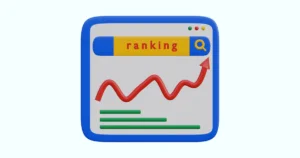Check out our 10 best SEO tools to use! If you want to rank your website higher in SERPs, you need to use the right tools.
1. Ahrefs
Ahrefs is one of the most frequently suggested SEO tools. When it comes to size, it comes second to Google among website crawlers. The Ahrefs Site Audit function is one of the best SEO analysis tools available. The tool displays the areas of your website that need to be improved for higher search engine positioning.
In terms of competitive analysis, you can use Ahrefs to identify the backlinks of your competitors. This SEO tool may also be used to check for broken links on your website.
2. Google Search Console
Google Search Console provides a free service to track and analyze your website’s performance in Google SERPs. Simply add a verification code to your website or go through Google Analytics to confirm your website. You don’t require a Google Search Console account to show up in Google’s search results, you may manage what is indexed using this account.
With Search Console, an SEO checker tool, you may learn how Google and its users perceive your website and improve its performance in Google search results. Due to the fact that it enables website owners to upload web pages for search indexing.
3. SEMrush
All SEO tools are available in the SEMrush SEO toolbox. You may see an overview of any domains you control as well as comprehensive keyword analysis data.
More importantly, the SEO toolkit enables you to evaluate the effectiveness of your pages in comparison to those of your rivals. You may, for instance, examine the hyperlinks that other websites have to yours.
This makes it possible for you to dig into the specifics of how your website and those of your rivals compare in terms of average session length and bounce rates. Furthermore, “Traffic Sources Comparison” provides a quick summary of the digital marketing channels used by a number of competitors. Bounce rates, for those who are unfamiliar with SEO jargon, refer to the proportion of visitors to a website who then leave without viewing any additional pages on the same website.
4. Moz Pro
Moz Pro helps to improve exposure, ranks, and traffic in search engine results.
One of the most important features is the ability to audit your own website using the Moz Pro spider, which should identify any potential problems and offer helpful advice. The option to monitor your website’s rankings across hundreds or even thousands of keywords per website is also available.
As well as a backlink analysis tool that combines a variety of data including anchor text in links and estimated domain authority, there is a keyword research tool to assist in determining which keywords and keyword combinations may be the best for targeting.
Moz Pro starts at $99 a month for the Standard subscription, which includes the fundamental features. The Medium plan offers a wider range of features for $179 per month and a free trial is available.
5. Majestic
Since its launch in 2011, Majestic SEO tools has regularly garnered accolades from seasoned SEO professionals. It is also one of the earliest SEO techniques still in use today because of this.
Backlinks, which are links between websites, are the major emphasis of the service. Because of the substantial impact this has on SEO performance, Majestic maintains a vast amount of backlink data.
Users have the option of searching both a “Historic Index,” which has received plaudits online for its lightning-fast retrieval speed and a “Fresh Index,” which is crawled and updated throughout the day. The “Majestic Million,” which lists the top 1 million websites, is one of the most well-liked features.
A mass backlink checker, a list of referring websites, IP addresses, and subnets, as well as Majestic’s built-in “Site Explorer,” are all included in the Majestic “Lite” version. Due to it being a little old, this function, which is intended to provide you with an overview of your online store, has drawn some criticism. Majestic does not integrate
6. SEO Spider
The euphemistically titled “Screaming Frog” first invented SEO Spider in 2010. Major companies like Disney, Shazam, and Dell are among the clientele of this raucous reptile.
One of SEO Spider’s most appealing features is its ability to quickly scan URLs and crawl your website to look for broken pages. By doing this, you can avoid having to manually click each link to rule out “404 errors.”
Additionally, you may use the tool to examine each page’s link count and look for duplicate meta tags, missing title tags, and incorrectly lengthened tags.
SEO Spider is available in both a free and a premium version. The most fundamental capabilities, including crawling redirects, are present in the free edition but are only available for 500 URLs. Because of this, the “Lite” version of SEO Spider is only appropriate for smaller domains. The paid edition costs $180 a year and comes with free tech assistance in addition to more sophisticated capabilities.
7. KWFinder: SEO Keyword Tool
You may uncover long-tail keywords with less competition by using an SEO keyword tool like KWFinder. The best keywords are found with this SEO tool, and reports on backlinks and SERP are done by professionals (Search Engine Results Page). Your rating is easily ascertainable with the use of their Rank Tracker tool, which also tracks your advancement depending on one important metric. You’ll also receive a tonne of fresh keyword suggestions to help you rank your website even higher as if that weren’t enough.
8. UberSuggest
By displaying the top-ranking SERPs, Ubersuggest, a free keyword tool created by Neil Patel, enables you to identify keywords as well as the search intent behind them. From short to long-tail phrases, you can find the best terms to use on your website with hundreds of suggestions from this great free keyword tool. Keyword volume, competition, CPC, and seasonal trends are among the metrics that Ubersuggest covers in its reports.
This tool is useful for both organic SEO and paid PPC because it can tell you whether a keyword is worthwhile to target and how competitive it is.
9. Answer The Public
You may quickly identify subjects to write about for your blog using free SEO tools like Answer The Public. I’ve previously utilized this program to produce articles centered around particular keywords in order to rank higher online. Let’s say your industry is “fitness.” Using this free SEO tool, you may write articles about a variety of topics, like fitness, yoga, jogging, Crossfit, and exercise. It’s excellent for discovering featured snippet possibilities. All you have to do is download this list and give it to the freelancer you hired to write content for you. One of the fastest ways to get SEO ideas for brand-new websites would only take you five minutes.
10. Google Trends
Our 10 best SEO tools can’t be complete without Google Trends. Although Google Trends has been available for a while, it is rarely used. In addition to providing details about a term, it also provides excellent insight into current trends, which can be helpful at any point in a company’s development. Anywhere in the world, you may search for keywords and get information about them, including top queries, rising queries, interest over time, and geographic places based on interest. This is the finest SEO tool to use if you’re not sure whether trends are right for you.
We might miss some SEO tools which might not be part of these 10 best SEO tools to use.
Also read, How to do SEO for website step by step.

